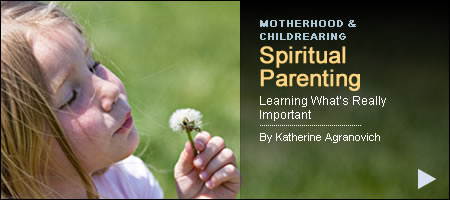והנה כללות היו״ד ספירות שבנשמת האדם
Now, as regards the totality of the Ten Sefirot [as they appear] in the soul of man,
נודע לכל שהמדות נחלקות בדרך כלל לז׳ מדות
It is known to all1 that the emotive attributes divide into seven general categories,2
וכל פרטי המדות שבאדם באות מאחת מז׳ מדות אלו
and each of the particular attributes in man derives from one of these seven attributes.
שהן שורש כל המדות וכללותן
For they are the root of all the attributes and their generality,
שהן: מדת החסד, להשפיע בלי גבול
namely: the attribute of Chesed ("lovingkindness"), [which is a thrust] to diffuse benevolence [to all] without limit;
ומדת הגבורה, לצמצם מלהשפיע כל כך, או שלא להשפיע כלל
the attribute of Gevurah ("stern limitation and contraction"), [which seeks] to restrain such a degree of diffusion, or to withhold diffusion altogether3 [from certain individuals];
ומדת הרחמים, לרחם על מי ששייך לשון רחמנות עליו
and the attribute of Rachamim ("compassion"), [which seeks] to pity a person to whom compassion is appropriate4 and to extend benevolence to him as well, although he may be unworthy of it.
והיא מדה ממוצעת בין גבורה לחסד
[Rachamim] is the mediating attribute between Gevurah and Chesed,
שהיא להשפיע לכל, גם למי שלא שייך לשון רחמנות עליו כלל
the latter of which would diffuse benevolence to all, even to a person to whom compassion is not at all appropriate,5
מפני שאינו חסר כלום, ואינו שרוי בצער כלל
inasmuch as he lacks nothing and is in no state of trouble whatever.6
Because the attribute of Chesed is unlimited it desires to benefit even someone who lacks nothing. The attribute of Rachamim, by contrast, being also compounded of Gevurah, will not seek to diffuse indiscriminately. At the same time, Rachamim pleads the cause of any individual who is in a pitiable state, however unworthy he may be.
ולפי שהיא מדה ממוצעת, נקראת תפארת
Because [the attribute of Rachamim] is the mediating attribute, it is called Tiferet ("beauty"),
כמו בגדי תפארת, על דרך משל
by analogy with beautiful garments
שהוא בגד צבוע בגוונים הרבה, מעורבים בדרך שהיא תפארת ונוי
which are7 dyed with many colors blended8 in a way that gives rise to beauty and decoration.
מה שאין כן בגד הצבוע בגוון אחד, לא שייך בו לשון תפארת
To a garment dyed in one color, however, one cannot apply the term Tiferet, which implies the beauty of harmony. And since the attribute of Rachamim is compounded of Chesed and Gevurah, the term Tiferet is appropriate.
ואחר כך, בבוא ההשפעה לידי מעשה
Afterwards, once the attribute of either Chesed, Gevurah or Tiferet is aroused to dispense benevolence, as the diffusion is realized,
דהיינו, בשעת ההשפעה ממש
that is, at the time of the actual diffusion,
צריך להתיעץ איך להשפיע בדרך שיוכל המקבל לקבל ההשפעה
it is necessary to deliberate how to diffuse in such a way that the recipient will be able to absorb the effusion.9
כגון שרוצה להשפיע דבר חכמה ללמדה לבנו
For example, when one wishes — and this is a powerful desire — to convey and teach an intellectual subject to his son:
אם יאמרנה לו כולה, כמו שהיא בשכלו, לא יוכל הבן להבין ולקבל
If he will tell it to him in its totality, just as it appears in his own mind, the son will be unable to understand and to absorb it.
This could happen either (a) because the concept as understood by the father is too abstract and subtle for the son, and needs to be lent a more tangible garb, such as a parable; or (b) because the concept is too comprehensive and too diverse, and needs to be broken down into digestible segments, only some of which will be presented to the son.
רק שצריך לסדר לו בסדר וענין אחר
Rather, one needs to arrange [it] for him in a different order and context, such as by providing an example from an alternative context,
דבר דבור על אופניו
"every word fitly spoken,"10 presenting first one side of the issue at hand and then the other,
מעט מעט
little by little, a little of the concept at a time.
The concept thus needs to be contracted with regard to its "length", by lowering its stature until it is within the grasp of the recipient, and with regard to its "breadth", by reducing its manifold details to match the capacity of the son or student.
ובחינת עצה זו נקראת נצח והוד
This deliberation, regarding how best to present the concept, is referred to [by the terms] Netzach and Hod.
שהן כליות יועצות
These [attributes] are11 "the kidneys that advise," in a manner similar to their physical counterpart,
וגם תרין ביעין המבשלים הזרע
and they are also (in spiritual terms) the two testicles that prepare the spermatozoa,12
Like their physical counterpart, the attributes of Netzach and Hod adapt the effusion of the concept.
שהיא הטפה הנמשכת מהמוח
i.e., the drop that issues from the brain.13
דהיינו, דבר חכמה ושכל הנמשך משכל האב, שלא יומשך כמו שהוא, שכל דק מאד במוחו ושכלו
That is, [they adapt] an intellectual subject deriving from the father's mind in such a way that it will not issue unmodified, i.e., as a very subtle concept in his brain and intellect,
רק ישתנה קצת מדקות שכלו, ויתהווה שכל שאינו דק כל כך
but that it change somewhat from the subtlety of his intelligence and become a somewhat less subtle concept,
כדי שיוכל הבן לקבל במוחו והבנתו
so that the son will be able to absorb [it] in his mind and understanding.
והוא ממש על דרך משל כטפה היורדת מהמוח
This is truly analogous to the seminal drop which descends from the brain;
שהיא דקה מאד, ונעשית גסה וחומרית ממש בכליות ותרין ביעין
it is extremely tenuous, and, through the kidneys and the two testicles, it becomes truly concrete and corporeal.
This process parallels the progressive concretization of a concept, as it descends to match the capacity of the recipient.
The Alter Rebbe now speaks of yet another function of the attributes of Netzach and Hod — separating a concept into its various components.
וגם נצח והוד נקראים שחקים ורחיים, ששוחקים מן לצדיקים
Netzach and Hod are also referred to as "grinders" and "millstones", because they "grind the mannah for the righteous,"14 like the heaven which is named Shechakim (שחקים) for it "grinds (שוחקים) the mannah for the righteous."
כמו הטוחן חטים ברחיים, על דרך משל, שמפרר החטים לחלקים דקים מאד
Just as, by way of example, a person who grinds [wheat]15 with millstones crumbles it into very fine parts,
כך צריך האב להקטין השכל ודבר חכמה שרוצה להשפיע לבנו
so too does the father need to taper the insight or the intellectual subject he wishes to convey to his son,
ולחלקם לחלקים רבים, ולומר לו מעט מעט במועצות ודעת
and to divide them into many parts, relating [them] to him gradually, with devices and discernment.
Dividing a concept in this way so as to be able to determine what should be presented and what should be withheld is a contraction of the concept's depth. Thus, Netzach and Hod serve to contract its length, breadth and depth — the concept in all its dimensions.
וגם בכלל בחינת נצח הוא לנצח ולעמוד נגד כל מונע ההשפעה והלימוד מבנו, מבית ומבחוץ
The category of Netzach also comprises prevailing16 and standing up against anything, from within or from without, that withholds from his son the transmission of beneficial influence or learning.
מבית, היינו: להתחזק נגד מדת הגבורה והצמצום שבאב עצמו
"From within" means firmly resisting the attribute of Gevurah and tzimtzum within the father himself,
שהיא מעוררת דינים ברצונו על בנו
for it arouses (within his will) contentions against his son,
לומר שאינו ראוי לכך עדיין
arguing that he is not yet fit for this [profound knowledge].
There now follows a parenthetical note in the text which states:
(בכתבי יד נרשם: חסר)
(A note in the manuscripts: Omission.)
I.e., according to some of the manuscripts which were compared to the previous printed editions of Iggeret HaKodesh when the current edition was being prepared for publication,17 there is an omission here in the text.
The Rebbe notes that prevailing over influences "from without" is even more important to explain than prevailing over influences "from within." The fact that this explanation is lacking points to an omission in the text.
In addition: According to the translation offered above that "The category of Netzach also comprises...," there is nothing amiss in the Alter Rebbe's failure to explain a corresponding aspect within Hod, for Hod comprises no such corresponding aspect. However, the translation may also be rendered: "In general, the category of Netzach also entails...." If this is indeed the proper rendition, then the question arises, why was there no corresponding statement as to the general function of Hod? Its absence likewise demonstrates that there is an omission in the text.
The Alter Rebbe now goes on to explain the attribute of Yesod.
ובחינת יסוד היא על דרך משל ההתקשרות, שמקשר האב שכלו בשכל בנו
The category of Yesod is, by way of example, the bond by which the father binds his intellect to the intellect of his son
בשעת למודו עמו באהבה ורצון, שרוצה שיבין בנו
while teaching him with love and willingness, for he wishes his son to understand.
ובלעדי זה, גם אם היה הבן שומע דבורים אלו עצמם מפי אביו שמדבר בעדו ולומד לעצמו
Without this [bond], even if the son would hear the very same words from the mouth of his father [18as he speaks and studies to himself],
לא היה מבין כל כך כמו עכשיו
he would not understand [them] as well as now,
שאביו מקשר שכלו אליו, ומדבר עמו פנים אל פנים באהבה וחשק, שחושק מאד שיבין בנו
when his father binds his intellect to him and speaks with him face to face19 with love and desire, because he desires very much that his son understand.
The father does not merely want to enlighten his son; his desire stemming from Yesod is powerful because it is driven by pleasure.
(בכתב יד קודש אדמו״ר בעל הצמח צדק, נשמתו עדן, בדרוש: כי ידעתיו, סעיף י״ג, שהועתק שם לשון זה ליתא תיבות אלו)
[20In the holy handwriting of the Tzemach Tzedek, of blessed memory, (in the discourse entitled Ki Yedaativ, sec. 13,21 where this passage is quoted,) the above words ("as he speaks and studies to himself") are not to be found.]
The reason for this omission: Not only is there a difference between (a) what the son passively absorbs when he hears his father studying independently, and (b) what he absorbs when his father actively teaches him; but even when the father is actually teaching, the presence or absence of the quality of Yesod will determine whether or not his son's mind will be ignited by the fire of his own desire to communicate.
וכל מה שהחשק והתענוג גדול, כך ההשפעה והלימוד גדול
And the greater the desire and delight of the father, the greater is the influence and the learning,22
שהבן יוכל לקבל יותר, והאב משפיע יותר
because then the son is able to absorb more and the father communicates more, proportionally.
כי על ידי החשק והתענוג, מתרבה ומתגדל שכלו בהרחבת הדעת, להשפיע וללמד לבנו
For through the desire and delight, and with a contented disposition, his own insight is heightened and amplified, so that he can bestow enlightenment upon his son and teach him.
וכמו, על דרך משל, בגשמיות ממש, רבוי הזרע הוא מרוב החשק והתענוג
(23This parallels, to draw a metaphor from [the attribute of Yesod in] the sphere of the truly physical, the profusion of spermatozoa that results from heightened desire and delight,
ועל ידי זה ממשיך הרבה מהמוח
through which much is elicited from the brain, which is its source.
ולכן המשילו חכמי האמת לזיווג גשמי, כמו שיתבאר
This is why the Kabbalists, seeking to illustrate the imparting of knowledge out of a sense of pleasure, used the analogy of a physical union, for there are a number of similarities between these two expressions of the attribute of Yesod, as will be explained.)24
והנה מדות אלו, הן בחינות חיצוניות שבנפש
Now, these emotive attributes — those involved in imparting enlightenment, and the like — are the external aspects of the soul.
ובתוכן מלובשות מדות פנימיות
Within them are vested the inner attributes, which bring about the external attributes involved in the actual imparting of knowledge,
שהן בחינות אהבה ויראה כו׳
i.e., the faculties of love and awe, and so on.
דהיינו, על דרך משל, באב המשפיע לבנו מחמת אהבתו
This may be compared to the case of a father who bestows enlightenment upon his son because of his love for him,
The internal aspect of the attribute involved is love and its external aspect is kindness.
ומונע השפעתו מפחדו ויראתו שלא יבא לידי מכשול, חס ושלום
and withholds his influence because of his dread and fear lest [his son] come to some downfall, heaven forfend.
The father's fear and dread are thus the internal aspect of his Gevurah, the attribute that completely or partially witholds the flow of instruction.
The remaining emotive attributes are all offshoots of love and fear (as explained in Part I, ch. 3, above), and accordingly they too possess internal and external aspects.
* * *
Having dealt with the middot, the seven emotive attributes of the soul, the Alter Rebbe now proceeds to discuss the intellective attributes which give birth to them.
ומקור ושרש מדות אלו, הפנימיות והחיצוניות
The source and root of these internal and external emotive attributes,
הוא מחב״ד שבנפשו
is the ChaBaD — an acronym for the intellectual faculties of Chochmah, Binah and Daat — of one's soul,
כי לפי שכל האדם, כך הן מדותיו
for a person's emotive traits are in proportion to his intellect.
כנראה בחוש, שהקטן, שהחב״ד שלו הן בבחינת קטנות, כך כל מדותיו הן בדברים קטני הערך
This is empirically evident; with a child, for example, whose ChaBaD are in a state of pettiness, all his emotive traits, too, relate to insignificant things, and as he matures in age and understanding, his emotive traits correspondingly aspire to worthier goals.
וגם בגדולים, לפי שכלו יהולל איש
With adults, too, the emotive traits develop in proportion to the intellect, for25 "According to his intelligence is a man praised."
Since the term "man" (איש) is an appelative for the emotive traits (cf. the verse,26 "As is a man, so is his Gevurah"), the previously-quoted verse is teaching us that a person's emotive traits are praiseworthy in proportion to the stature of his ChaBaD.
כי לפי רוב חכמתו, כך הוא רוב אהבתו וחסדו
For the extent of his love and kindness corresponds to the extent of his wisdom,
וכן שאר כל מדותיו פנימיות וחיצוניות, מקורן הוא מחב״ד שבו
and all his other internal and external traits likewise have their source in his ChaBaD.
והעיקר הוא הדעת שבו, הנמשך מבחינת החכמה ובינה שבו
Most important to the development of the spiritual emotions is one's Daat, which derives from one's Chochmah and Binah.
A thinker first grasps the essence of a concept through the seminal flash of illumination afforded by his faculty of Chochmah; he next understands it fully by means of the analysis and amplification which are the function of his faculty of Binah; ultimately, he must immerse himself in concentration on the concept, binding and unifying himself with it to the point that — beyond mere intellective comprehension — he also senses and experiences it with his faculty of Daat.
It is this faculty that is critical to the development of his middot, such as the spiritual emotions of love and awe of G‑d, for Daat provides them with their substance and vitality, as explained in Part I, ch. 3.
כנראה בחוש, כי לפי שינוי דעות בני אדם זה מזה, כך הוא שינוי מדותיהם
This is readily observable, for the differences between the emotive traits of various people corresponds to the differences in their respective degrees of Daat.













 Audio:
Audio: 










 By Tzvi Freeman
By Tzvi Freeman 
0 Comments:
Post a Comment
Subscribe to Post Comments [Atom]
<< Home